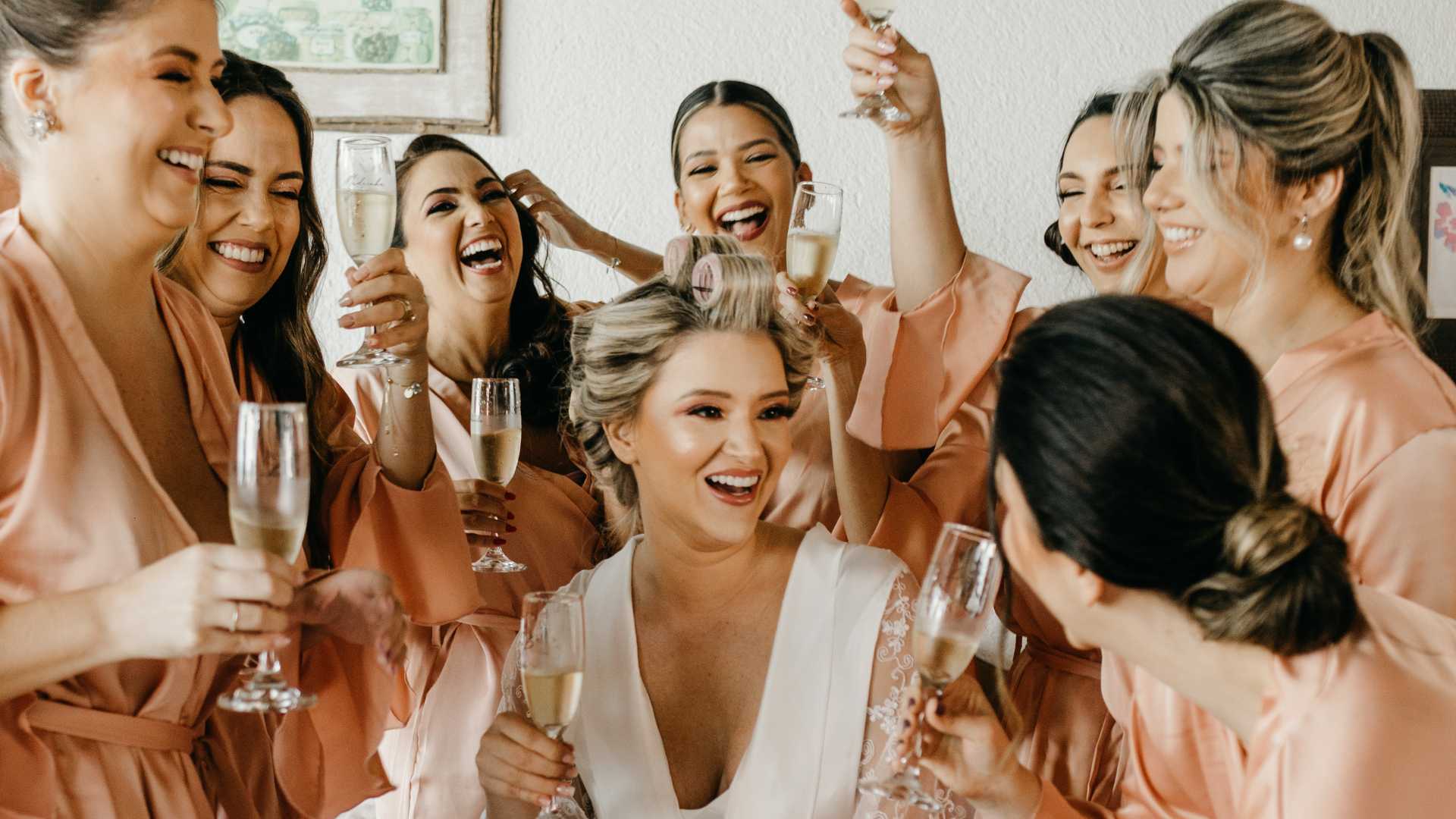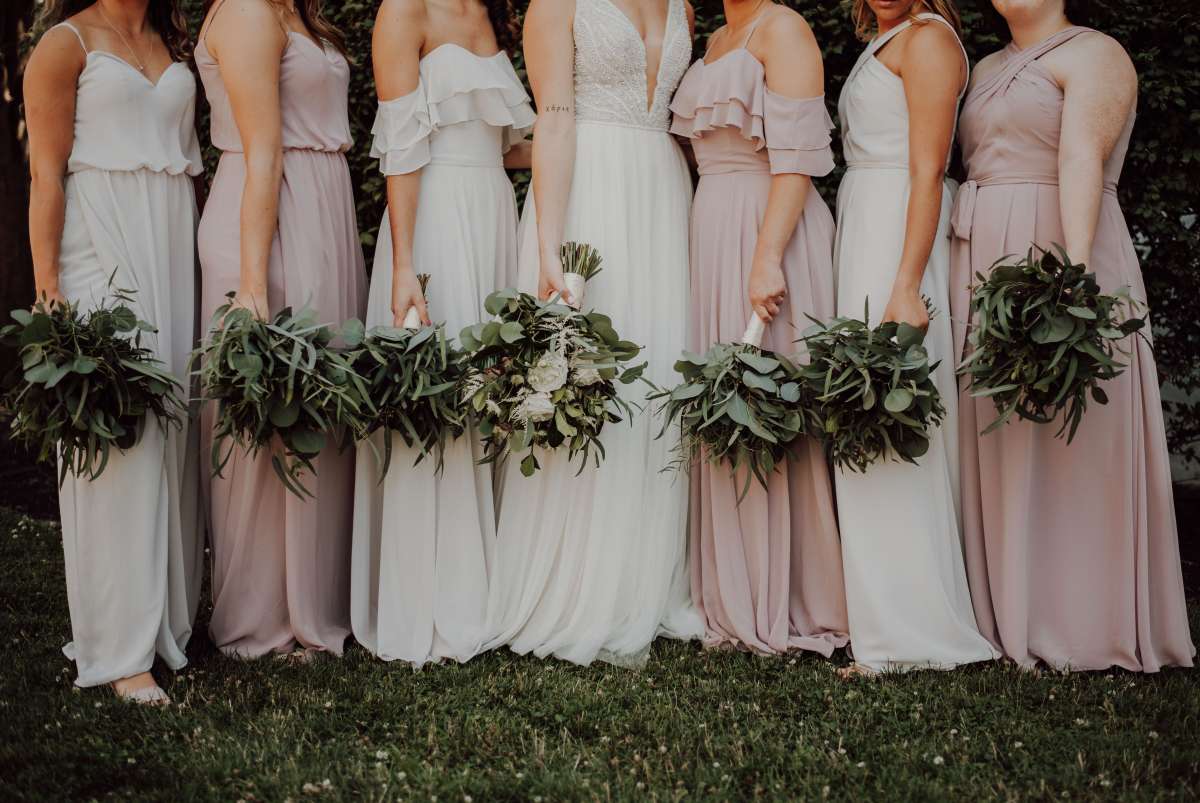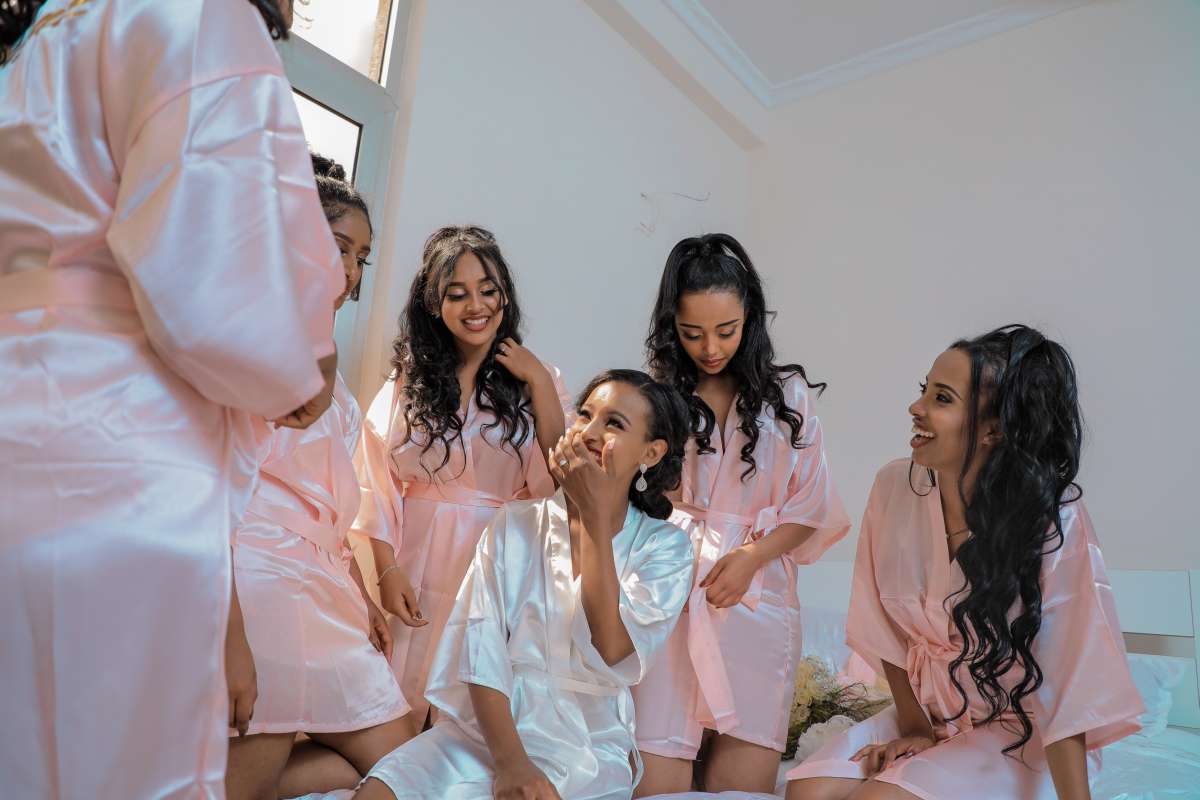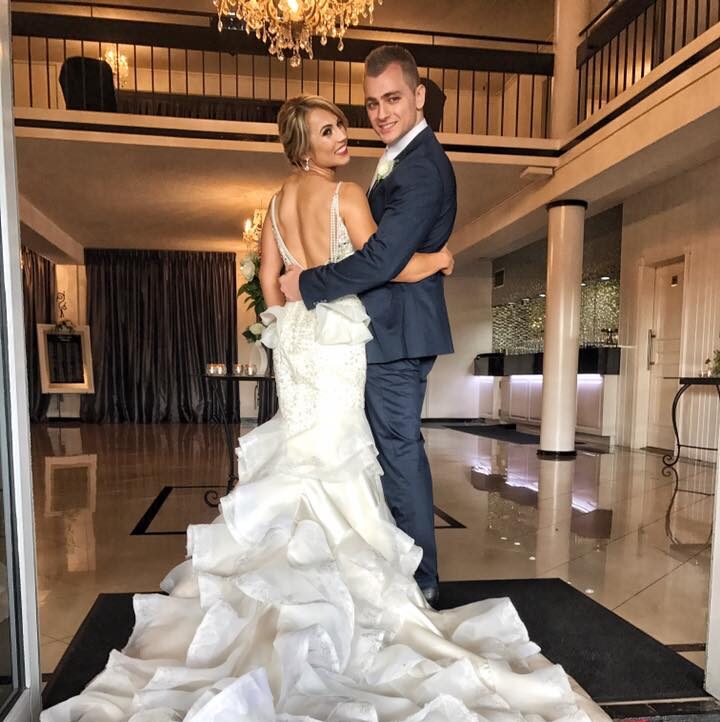When it comes to weddings, there are certain roles that carry a lot of weight and responsibility, and the Maid of Honour and Bridesmaids are no exception. Being asked to stand by a bride’s side on her special day is a huge honour, but it comes with a set of duties that can be as overwhelming as they are exciting. Whether you’re helping with pre-wedding preparations, supporting the bride emotionally, or playing a key role during the ceremony, understanding what’s expected of you is crucial.
You’ve probably heard the terms Maid of Honour and Bridesmaid used interchangeably, but there’s a world of difference between these two roles. As someone who’s had the pleasure of being both a Maid of Honour and a bridesmaid, I can tell you first-hand just how distinct these roles are – and how much of a difference it makes in the planning and execution of a wedding day. In this guide, we’ll break down the responsibilities of both positions and explore how the Maid of Honour stands apart, helping you understand what’s truly involved in each role.
Core Difference: Maid of Honour vs Bridesmaid
Why the Maid of Honour Holds a Special Position
When I first got asked to be a Maid of Honour, I remember feeling both honoured and, frankly, a little overwhelmed. It’s not just about the title – there’s a lot more to it than people might realise. The role of the Maid of Honour is a special one because it places you at the centre of the bridal party’s planning and organisation.
Essentially, the Maid of Honour is the bride’s “right-hand woman” – the one who takes charge of many of the big tasks and ensures everything runs smoothly. It’s a leadership role that comes with an additional layer of responsibility compared to the other bridesmaids. She’s often the bride’s closest friend or relative, and her duties can stretch far beyond what you’d expect.
In contrast, a bridesmaid’s role is more focused on general support. Think of them as the team members who help with smaller tasks, attend pre-wedding events, and keep the bride’s spirits high. They’re integral to the wedding process, but they don’t carry the same leadership load that the Maid of Honour does. It’s a bit like a captain of a team (the Maid of Honour) and the rest of the players (the bridesmaids).
What Does a Bridesmaid Do?
When you think of a bridesmaid, the first thing that comes to mind might be the bridesmaid dress, the wedding photos, or dancing at the reception. While those are certainly parts of the job, the role of a bridesmaid is much broader.
During my time as a bridesmaid, I remember jumping in whenever the bride needed help – whether that was addressing invitations, helping pick the decor, or just being there to lend an ear. A bridesmaid’s role is often about being flexible and adaptable. You’re there to offer help where it’s needed, whether that’s helping with wedding favours or managing the little logistics that ensure the day goes smoothly.
But the role isn’t just about the wedding day. A bridesmaid is there from the beginning, participating in wedding planning and being part of pre-wedding events like bridal showers and bachelorette parties. These events, as fun as they are, are also opportunities for the bridesmaids to show up for the bride, offering emotional support and a helping hand.
What Are the Responsibilities of a Maid of Honour and Bridesmaid?
Before the Wedding: Planning and Preparations
The wedding journey is a whirlwind, but it’s one of those occasions where it’s easy to see who really steps up and takes charge. The Maid of Honour’s role before the wedding is largely about organisation. This is when the leadership aspect of the role really shines.
During my time as Maid of Honour for my best friend’s wedding, I became the go-to person for coordinating most of the bridal party’s activities. I remember making countless calls to vendors, helping with the wedding timeline, and even sending out reminders for dress fittings. It’s not the glamorous side of the job, but it’s essential for keeping things running on time.
On the other hand, the bridesmaids do a lot of the support work. They’re involved in things like attending fittings, assisting with DIY projects, and making sure the bride doesn’t feel overwhelmed. I’ve seen bridesmaids organise small group tasks, such as helping with invitations, but it’s the Maid of Honour who ensures everything is heading in the right direction. It’s a bit like playing a supporting role in a big production – you’re there to make sure the spotlight shines on the bride without any hiccups.
Key Differences in Wedding Planning Tasks
One of the biggest distinctions between a Maid of Honour and a bridesmaid is the extent to which each is involved in the nitty-gritty of wedding planning. The Maid of Honour is essentially the bride’s chief planner – the one who helps to orchestrate everything from the big decisions (choosing vendors) to the smaller details (coordinating bridesmaid dresses).
I recall spending hours with my best friend, going over colour schemes, looking at table settings, and even reviewing the seating chart. The Maid of Honour is responsible for all these moving parts and often serves as the bridge between the bride and the rest of the wedding party. This can involve reminding bridesmaids about their duties or following up on RSVP statuses.
Bridesmaids, meanwhile, are there to offer support wherever they can. They play a role in these tasks, but they don’t typically take charge of them. It’s a more laid-back but still important role that ensures the bride doesn’t feel alone.
How the Maid of Honour and Bridesmaids Handle Pre-Wedding Events
The pre-wedding events are key moments for both the Maid of Honour and the bridesmaids. But while both groups participate, their roles differ.
As the Maid of Honour, I found myself not only attending events but also organising them. I took the reins for the bridal shower and the bachelorette party. From picking the venue to handling the guest list and coordinating logistics, these events were truly in my hands. While it was a lot of responsibility, it was also incredibly rewarding to create lasting memories for my friend before the big day.
Bridesmaids, meanwhile, often help with the execution of these events, offering support and contributing to costs. I vividly remember the other bridesmaids and I pooling our resources for the bachelorette party. It wasn’t about taking control, but rather being there to support the Maid of Honour in making it all come together.
On the Wedding Day: What to Expect from the Maid of Honour vs Bridesmaid
Getting Ready for the Big Day
The day of the wedding is full of excitement, nerves, and plenty of preparation. The Maid of Honour’s job on the wedding day starts bright and early, as she helps the bride get ready. I was the one who made sure my friend had everything she needed before the ceremony – from helping her with her dress to making sure she had water to stay hydrated.
While the bridesmaids also help the bride get ready, they’re often more focused on their own preparations. They’re there to support, but the Maid of Honour is in charge of ensuring everything runs smoothly. From hair and makeup to finalising the dress, the Maid of Honour is the organiser in chief, making sure the bride is calm and prepared for the day ahead.
What Are the Responsibilities of a Maid of Honour and Bridesmaid?
Before the Wedding: Planning and Preparations
When it comes to preparing for the wedding, the Maid of Honour is often the one doing the heavy lifting. In my own experience, it felt like I was the general manager of the wedding party. While the bridesmaids certainly helped with their share, it was my job to ensure that everything was on track. From booking vendors to confirming details about the bridal shower and bachelorette party, the Maid of Honour has her hands full with planning.
I remember spending hours with my best friend choosing floral arrangements, reviewing timelines, and coordinating details with the venue. It was during this stage that the importance of being the Maid of Honour truly hit home. It wasn’t just about attending events – it was about ensuring that the little things were lined up perfectly. The bridesmaids, on the other hand, often have a more passive role at this stage. They’ll be helping out where they can, but they’re not as involved in the nitty-gritty details of wedding planning.
The Maid of Honour plays a key role in coordinating the bridal party’s involvement. For example, when it comes to dress fittings, it’s up to the Maid of Honour to check in with the bridesmaids, confirm appointments, and make sure everyone is on the same page. It’s about keeping the wheels turning and maintaining smooth communication between the bride, the bridesmaids, and the wedding vendors.
Key Differences in Wedding Planning Tasks
When you’re planning a wedding, tasks can pile up quickly, and that’s where the Maid of Honour really steps into her leadership role. While the bridesmaids are involved in helping the bride out with various tasks, the Maid of Honour takes the reins. I remember taking charge of the wedding day timeline – ensuring everyone knew where they needed to be and when. It’s a big responsibility, but it ensures that everything runs like clockwork on the big day.
In contrast, the bridesmaids tend to focus on smaller tasks. They might be in charge of helping with DIY wedding decorations or addressing invitations. They’re crucial to the planning process, but they don’t have the overarching responsibility that the Maid of Honour has. I learned that a lot of wedding planning can feel like a juggling act – and that’s when having a reliable Maid of Honour is a godsend.
How the Maid of Honour and Bridesmaids Handle Pre-Wedding Events
Pre-wedding events are some of the most fun moments in the lead-up to the big day. From the bridal shower to the bachelorette party, these events are a great opportunity for everyone to bond. As Maid of Honour, I took the lead in planning these events – making sure everything aligned with the bride’s vision. I handled the guest list, picked a venue, organised the activities, and made sure everyone had their travel arrangements sorted.
On the other hand, the bridesmaids were instrumental in the execution. They helped with decorations, contributed financially to the costs, and played a key role in the success of both the bridal shower and bachelorette party. But the planning responsibility for these events was firmly in my hands. It was a lot of work, but also incredibly rewarding to see everything come together for my friend.
The reality is, pre-wedding events are where the Maid of Honour’s leadership truly comes to life. She’s the one orchestrating everything behind the scenes while ensuring the bride gets exactly what she wants. The bridesmaids help bring that vision to life by offering support, whether it’s helping with the planning or just being there to enjoy the event.
How to Choose Between a Maid of Honour and Bridesmaid
What Should You Consider When Choosing Your Maid of Honour?
Choosing a Maid of Honour is one of the most important decisions the bride will make during her wedding planning. It’s not just about picking someone you’re close with – it’s about finding someone who can handle the level of responsibility and take charge when necessary. From my experience, choosing a Maid of Honour isn’t always the easiest decision. As the bride, you want someone you trust, who’s reliable, and who can remain calm under pressure.
When my best friend asked me to be her Maid of Honour, I knew it was a big responsibility. We’d been through so much together, but I also knew I was the one who could help her stay organised, keep the peace among the bridesmaids, and handle any last-minute issues on the big day. It’s important to select someone who understands both the practical and emotional aspects of the role.
A good Maid of Honour is not just organised but also emotionally intelligent – someone who knows when to take charge and when to step back. The Maid of Honour is the person who’ll be helping coordinate the bridal party, offering emotional support, and often acting as the bride’s right-hand person for everything. Think of it as the person you can’t imagine not being by your side through it all.
What to Expect from Your Bridesmaids During Wedding Planning and the Big Day
Bridesmaids are incredibly important, too. They’re the supporting cast that helps the Maid of Honour execute all the pre-wedding tasks and ensures that the wedding day runs smoothly. However, unlike the Maid of Honour, bridesmaids don’t have to handle as many high-stakes responsibilities. As I mentioned earlier, they’re more involved in the day-to-day tasks like attending dress fittings, helping with pre-wedding events, and just being there to lend an ear when things get stressful.
Choosing your bridesmaids should be about picking people who can contribute positively to the process. You want people who are flexible, reliable, and willing to take on smaller tasks. I’ve always said that the best bridesmaids are the ones who are easy to work with – they’re not just there for the fun, they’re there for the logistics and the hard work too.
On the big day, bridesmaids are there to help with whatever the bride needs – whether it’s helping with her dress, arranging the bouquet, or ensuring she stays calm before walking down the aisle. They’re there to ensure that every moment flows effortlessly. When I was a bridesmaid at a friend’s wedding, I felt proud to be part of the team that supported her, knowing that the Maid of Honour was in charge of the bigger tasks, but I was still able to contribute in meaningful ways.
Choosing Between Maid of Honour and Bridesmaids
In the end, both the Maid of Honour and bridesmaids play crucial roles in ensuring that the wedding day is as smooth and memorable as possible. The Maid of Honour carries a leadership role, helping the bride with the planning process and offering crucial emotional and logistical support. The bridesmaids, while not in charge, are essential to ensuring the bride’s needs are met throughout the entire process.
If you’re choosing between a Maid of Honour and Bridesmaids, it’s important to remember that the key difference lies in the level of responsibility each role holds. The Maid of Honour will be your go-to person for everything from emotional support to managing the bridal party. The bridesmaids will be there to help execute the plans, offering assistance wherever necessary.





